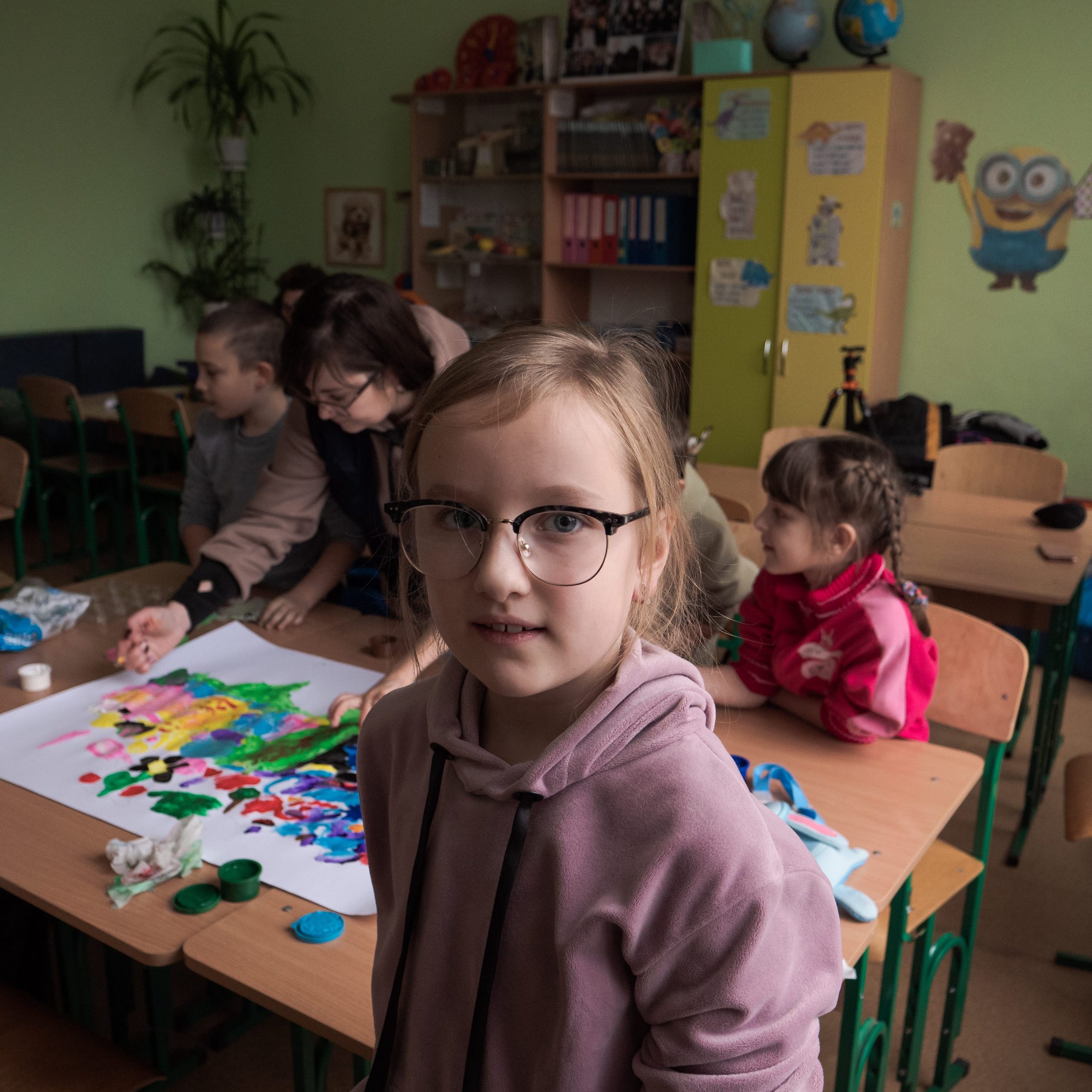In Ukraine, the consequences of the war are getting worse. The weather gets colder and the bombings haven't stopped. In late November, we went there to show you how the population is coping. And what we are doing to help.
This first part of the reportage describes what happens in Kharkiv when the air-raid sirens start blasting. Down the stairs we go and into the bomb shelter of a kindergarten: thanks to the funds received, we helped the teachers turn a gloomy basement into one of the kid's favorite playground. A tangible way to alleviate the trauma caused by this nine-month-long war.
Kharkiv: what happens when air-raid sirens ring out
On our phones, the air-raid warning goes off and Stanislav leads us into the Serpnia metro station. We are required to do so as AVSI's security procedures are particularly strict here in Kharkiv, after Russia started intensifying airstrikes against Ukraine over the last month, hitting electrical infrastructure and leaving the country in the dark.
"This is a serious warning", Stanislav told us just a few minutes before. In the car, he called four different people and wrote on dozens of Telegram groups to get information. Russians launched a new large-scale missile attack, in the regions of Odessa, Dnipro, Nikolaev, Poltava and Kiev.
"I'm not worried," he confides as we walk down the stairs and through the turnstiles, that are always open during air-raid warnings. "Sometimes, sirens can go off up to 10 times a day. If I didn't work for AVSI, I wouldn't be going into a shelter right now." Many other people in Kharkiv do the same: the streets outside are full of people, the metro continues to run, commuters are the only ones crowding the stations. Notwithstanding the authorities' calls for everyone to reach a safe place in these cases, especially in higher-risk cities such as Kharkiv.
We take the subway, too, and Stanislav, who has been running some of AVSI's educational projects in Ukraine since June, tells us that his brother-in-law lost the use of an arm due to shrapnel from an artillery shell. "The first months of the war were the hardest. Russian tanks reached the outskirts of Kharkiv and bombarded the city. They hit iconic landmarks in the city center, the Palace of the Regional Government, but also residential areas, hospitals and schools."
Supporting 300 families "the Arbus kindergarten is the only place where children and teenagers can socialize"
When the siren went off, we were in the Arbus kindergarten, which means "watermelon" in Ukrainian. In March, a missile hit the kindergarten roof and destroyed the building's second floor. "The work we do here with the children is not easy, but essential", the head teacher explained to us. Arbus is located in the neighborhood of Pyatykhatky, which was right next to the front line at the beginning of the invasion. Almost all of the buildings were damaged during the raids and even today this is still considered an area at risk. AVSI is supporting some the kindergarten's renovation procedures and distributes school supplies.
Since the war began, more than 4,000 missiles have hit Ukraine. One of the teachers, Yula, showed us some videos she took during the first few weeks of the conflict. "Dom", she said, which means "home" in Russian. She was showing us the apartment building she lived in, the place her husband went to work to, and many other buildings in the neighborhood. All of them were completely destroyed.
"What we do here is the only way for the children to meet in person" - she said. Since February, schools are closed for security reasons and children only do remote schooling. So, these kindergarten teachers decided to start organizing recreational activities for teenagers, too. "We reach about 300 families, teach classes for their kids and give them help".
Here at the Arbus they got used to the sound of air-raid sirens, but nevertheless everytime they start blasting they take the children to the bomb shelter. The basement is the safest place, but it used to be a sauna, it was small and gloomy. Therefore, the teachers took some plastic sheets and transformed it into a big pool full of colorful balls. "We did it to entertain the children, so that they can keep playing down here. The shelter has become their favorite place."
We get off the train just before the blackout begins. In the station, the lights suddenly go out and the subways come to a halt. Russians have achieved their goal: most of the Ukrainian territory won't have power for three days. Without electricity, heaters won't work, nor will the water-carrying pumps. Bathrooms cannot be used, stores close. Just a few gas stations turn on their generators and long lines form to get gasoline. The streets get completely dark: one can only get around on foot by using one's phone flashlight.















